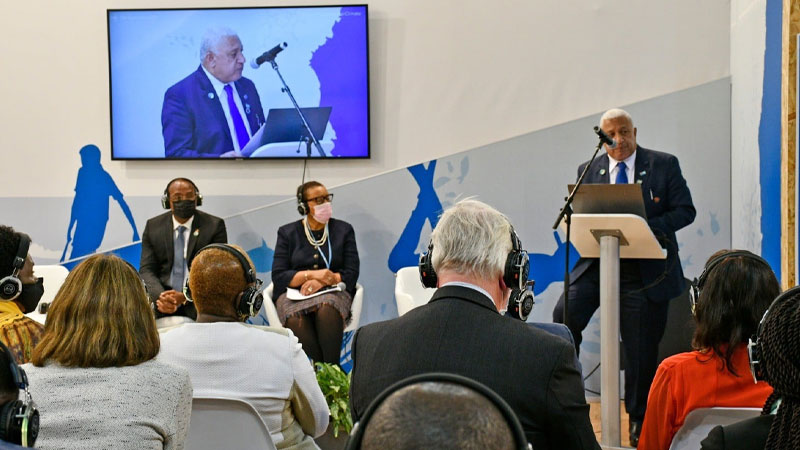
Prime Minister Voreqe Bainimarama has shared a personal story about his relationship with Fiji’s reefs at the Coral Reef Rescue initiative event at COP26 in Glasgow.
Bainimarama says it’s not an easy story for him to share.
He says like most Fijians, he was on the water at a very young age.
The Prime Minister shared that his first real job was working on board an old sailing yacht called “Maroro” - a boat that already had a rich history as the personal vessel of Queen Sālote of Tonga.
He says of their many duties, there is one he will never forget and will always regret: reef blasting.
Bainimarama adds for those who aren’t familiar with this terrible practice, they were demolishing coral with explosives, carving channels for boats to safely pass through.
He adds sadly, that work was in high demand.
The Prime Minister says he travelled our waters blasting reefs –– some of the richest and most vibrant sources of biodiversity on the planet and went on to take that disastrous skillset with him into the Fijian Navy.
He says as he learned more about our reefs and the lasting damage they were causing his heart broke.
Bainimarama adds in 1982, by the time he had risen to the rank of Commander in the Fijian Navy, they recognised the error of their ways.
He says banned reef blasting for good.
Bainimarama told delegates that Fiji’s reefs today are properly marked so they can be easily navigated.
He says they rely on hydrographic technology to keep vessels safe at sea.
The Prime Minister further says our great Sea Reef –– the third longest reef system in the Southern Hemisphere and the home of half our known reef fish and three-quarters of our coral –– is under a regime of sustainable management.
Bainimarama says according to the WWF, its reefs, inter-tidal areas, and coastal wetlands feed around 80% of Fiji’s population
He stresses that blasting may no longer threaten Fiji’s reefs, but these vital ecosystems remain under attack.
The Prime Minister stresses that carbon is our new weapon of choice and when we emit it into the atmosphere, our ocean –– the planet’s largest carbon sink –– sucks up huge amounts of it.
He says it warms the seas and acidifies them, making it impossible for ocean life to thrive.
Stay tuned for the latest news on our radio stations


